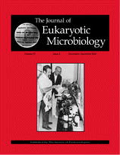
JOURNAL OF EUKARYOTIC MICROBIOLOGY
metrics 2024
Illuminating the Diversity of Eukaryotic Microbiology
Introduction
JOURNAL OF EUKARYOTIC MICROBIOLOGY, published by WILEY, stands as a vital resource within the field of microbiology since its inception in 1993. With its ISSN 1066-5234 and E-ISSN 1550-7408, this journal provides a platform for the dissemination of high-quality research focused on the biology of eukaryotic microorganisms, including fungi, protozoa, and algae. The journal currently holds a Q3 ranking in the microbiology category, highlighting its significant contribution to scientific discourse in the field. With a multi-disciplinary approach, it encourages submissions that push the boundaries of understanding in areas such as microbiological ecology, phylogenetics, and molecular microbiology. While it does not offer open access, it remains widely accessible to researchers and academics through institutional subscriptions. As the journal progresses towards its converged years ending in 2024, it continues to be a beacon for students, professionals, and researchers alike who seek to explore and advance their understanding of eukaryotic microorganisms.
Metrics 2024
 0.66
0.66 2.10
2.10 2.20
2.20 87
87Metrics History
Rank 2024
Scopus
IF (Web Of Science)
JCI (Web Of Science)
Quartile History
Similar Journals

ACTA ENTOMOLOGICA MUSEI NATIONALIS PRAGAE
Empowering Research in Insect Biology and BeyondACTA ENTOMOLOGICA MUSEI NATIONALIS PRAGAE, published by the esteemed NARODNI MUZEUM - PRIRODOVECKE MUZEUM in the Czech Republic, is an influential journal in the fields of Ecology, Evolution, Behavior and Systematics, as well as Insect Science. With an ISSN of 0374-1036 and an E-ISSN of 1804-6487, this journal has established itself as a vital resource for researchers, professionals, and students interested in the intricate world of entomology. Spanning publications from 2005 to 2024, it is recognized for its contributions to the understanding of insect biology, offering insights on ecological interactions and evolutionary relationships. Although it operates as a subscription-based platform, the journal maintains a respectable presence in scholarly circles, positioned in the Q2 quartile for both relevant categories in 2023. ACTA ENTOMOLOGICA serves not only as a repository of significant empirical findings but also as a discourse platform for emerging entomological concepts, making it an essential read for those involved in the biological sciences.
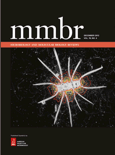
MICROBIOLOGY AND MOLECULAR BIOLOGY REVIEWS
Connecting Research and Discovery in Microbiology and Molecular BiologyMICROBIOLOGY AND MOLECULAR BIOLOGY REVIEWS, published by the American Society for Microbiology, is a premier journal dedicated to advancing the fields of microbiology and molecular biology. With an impressive impact factor reflective of its Q1 ranking in categories such as Immunology, Infectious Diseases, and Molecular Biology, this journal consistently showcases high-quality, peer-reviewed articles that contribute to the current understanding of microbial life and molecular mechanisms. Operating since 1997, the journal aims to bridge the gap between microbiological methods and molecular biology applications, making it an essential resource for researchers, professionals, and students alike. Readers can access content through various platforms, ensuring that the latest findings are readily available to the scientific community. With its esteemed reputation, MICROBIOLOGY AND MOLECULAR BIOLOGY REVIEWS remains a leading voice in the exploration of the life sciences, catering to a broad audience deeply invested in unraveling the complexities of microbial and molecular systems.
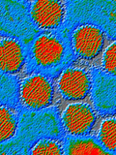
Annual Review of Microbiology
Pioneering Reviews for the Future of MicrobiologyAnnual Review of Microbiology is a preeminent academic journal published by Annual Reviews, specializing in the dynamic field of microbiology. With a rich history dating back to 1948, this journal has become a vital resource for researchers, professionals, and students alike, providing comprehensive reviews that synthesize the latest advancements and trends in microbiological research. The journal is renowned for its impressive reputation, holding a Q1 ranking in both Medicine (miscellaneous) and Microbiology, and achieving an outstanding Scopus rank of #12 out of 182 in the field, placing it in the 93rd percentile. Although it does not offer open access, the Annual Review of Microbiology remains integral to advancing knowledge and understanding of microbial science, helping to bridge the gap between fundamental research and practical applications in health, industry, and environmental sustainability. Its meticulously curated content serves as a crucial platform for fostering innovation and collaboration among the global research community.

ANTONIE VAN LEEUWENHOEK INTERNATIONAL JOURNAL OF GENERAL AND MOLECULAR MICROBIOLOGY
Advancing the Frontiers of Microbial ResearchANTONIE VAN LEEUWENHOEK INTERNATIONAL JOURNAL OF GENERAL AND MOLECULAR MICROBIOLOGY, published by Springer, is a vital resource for advancing research in the fields of microbiology and molecular biology. With its ISSN 0003-6072 and E-ISSN 1572-9699, this journal consistently focuses on cutting-edge studies and developments, providing a platform for the dissemination of knowledge that spans over its rich history from 1934 onwards. The journal holds an impressive reputation, ranked Q2 in Medicine (miscellaneous) and Q3 in both Microbiology and Molecular Biology for 2023, reflecting its significant contribution to the scientific community. Researchers and professionals from various disciplines rely on this journal for quality publications that address complex microbial interactions and molecular mechanisms. Although it currently does not provide open access options, its compelling research remains accessible through institutional subscriptions, allowing it to foster collaborative advancements in the ever-evolving landscape of microbiological sciences.

Open Biology
Unlocking the mysteries of biology, one study at a time.Open Biology is a prestigious, interdisciplinary journal published by the Royal Society that has been paving the way in the fields of Biochemistry, Genetics and Molecular Biology, Immunology, and Neuroscience since its inception in 2011. Catering to a global audience of researchers, professionals, and students, Open Biology operates under an open access model, facilitating the unrestricted dissemination of high-quality research findings. With a current impact factor that positions its categories in the top quartile (Q1) and impressive Scopus rankings—evidencing its influence and reach—this journal serves as a vital platform for innovators and scientific inquiries aimed at advancing our understanding of life sciences. The journal's commitment to publishing cutting-edge research makes it an essential resource for those at the forefront of scientific exploration.
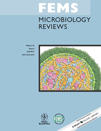
FEMS MICROBIOLOGY REVIEWS
Advancing Knowledge in Microbiology and BeyondFEMS Microbiology Reviews, published by Oxford University Press, is a leading journal in the field of microbiology, with a notable impact in related disciplines such as infectious diseases and medicine. Since its inception in 1989, this esteemed journal has grown to occupy a prestigious position, consistently ranking in the first quartile (Q1) in various categories, including Infectious Diseases, Medicine (miscellaneous), and Microbiology. With an impressive Scopus ranking of #13 in Microbiology and #25 in Infectious Diseases, it is recognized for its high-quality and impactful reviews that bridge the gap between fundamental microbiological research and practical applications. Aimed at researchers, professionals, and students alike, FEMS Microbiology Reviews offers critical insights and comprehensive analyses, making it an essential resource for those engaged in the dynamic study of microbial life and its implications for health and disease.
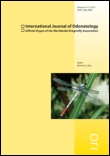
INTERNATIONAL JOURNAL OF ODONATOLOGY
Illuminating the Science of Dragonflies and DamselfliesINTERNATIONAL JOURNAL OF ODONATOLOGY, published by Wachholtz Verlag GmbH, is a vital resource for researchers and professionals in the fields of Ecology, Evolution, Behavior, and Insect Science. Established in 1998, this journal provides a platform for the dissemination of innovative research pertaining to odonatology, encompassing the ecological and biological interactions of dragonflies and damselflies. With its focus on advancing knowledge within these scientific disciplines, the journal holds a commendable Q3 ranking in Ecology, Evolution, Behavior and Systematics and a Q2 ranking in Insect Science for 2023, reflecting its significance in academic circles. Although it operates without open access, its articles are accessible through institutional subscriptions, allowing for wide dissemination among scholars and practitioners. The journal's commitment to publishing high-quality, peer-reviewed research makes it an authoritative source of information that enriches the study of odonates and their broader ecological contexts. For inquiries, the journal's editorial team can be reached at C/O Fleet7, Fleethorn 7, Kiel 24103, Germany.

Jundishapur Journal of Microbiology
Connecting researchers to foster breakthroughs in microbial science.Welcome to the Jundishapur Journal of Microbiology, a peer-reviewed publication dedicated to advancing the field of microbiology. Published by BRIEFLAND, this journal focuses on key areas such as infectious diseases and medical microbiology, offering a platform for researchers to share their findings from 2009 to 2024. Despite its current positioning in Quartile 4 across various categories in 2023, the journal provides a valuable resource for budding scientists and established professionals alike, contributing to the growing body of knowledge in these critical areas. While it is not an open-access journal, the Jundishapur Journal prioritizes the dissemination of research in the Netherlands, facilitating a deeper understanding of microbial science and its implications for public health. Join a community of innovators committed to exploring both emerging and established themes in microbiology.

TAIWANIA
Cultivating collaboration to address crucial ecological challenges.TAIWANIA is a prestigious and long-standing journal dedicated to the fields of ecology, evolution, and systematics, published by NATIONAL TAIWAN UNIVERSITY PRESS. Since its inception in 1947, this open-access journal has provided a vital platform for researchers to disseminate their findings, encouraging collaboration and innovation in the ecological sciences. With a 2023 impact factor placing it in Quartile 2 for Ecology and Quartile 3 for Ecology, Evolution, Behavior and Systematics, TAIWANIA is recognized for its quality and influence, ranking #267 out of 461 in Environmental Science and #426 out of 721 in Agricultural and Biological Sciences within Scopus. The journal currently publishes contributions from both local and international researchers, showcasing a diverse array of topics that address crucial ecological issues and facilitate the advancement of knowledge in the discipline. For those seeking rigorous research, engaging reviews, and a commitment to open access, TAIWANIA remains a significant resource for the global scientific community.
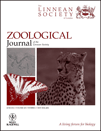
ZOOLOGICAL JOURNAL OF THE LINNEAN SOCIETY
Championing scholarly excellence in zoological studies.Zoological Journal of the Linnean Society, published by Oxford University Press, stands as a prestigious vessel for scholarly discourse in the fields of Animal Science and Ecology. With an ISSN of 0024-4082 and E-ISSN 1096-3642, this journal has an illustrious history dating back to its inception in 1866, and has consistently contributed groundbreaking research that shapes our understanding of zoology and evolutionary biology. Operating out of the United Kingdom, the journal boasts an impressive Q1 ranking in both Animal Science and Zoology and Ecology, Evolution, Behavior and Systematics, positioning it among the top tier of its category. With a significant presence in the academic landscape, the journal ranks 24th among 490 in Animal Science and 97th among 721 in Ecology, reflecting its impact and relevance in the field. Although it is not an open access journal, the wealth of knowledge it offers is invaluable for researchers, professionals, and students alike, aiding in the advancement of zoological sciences.